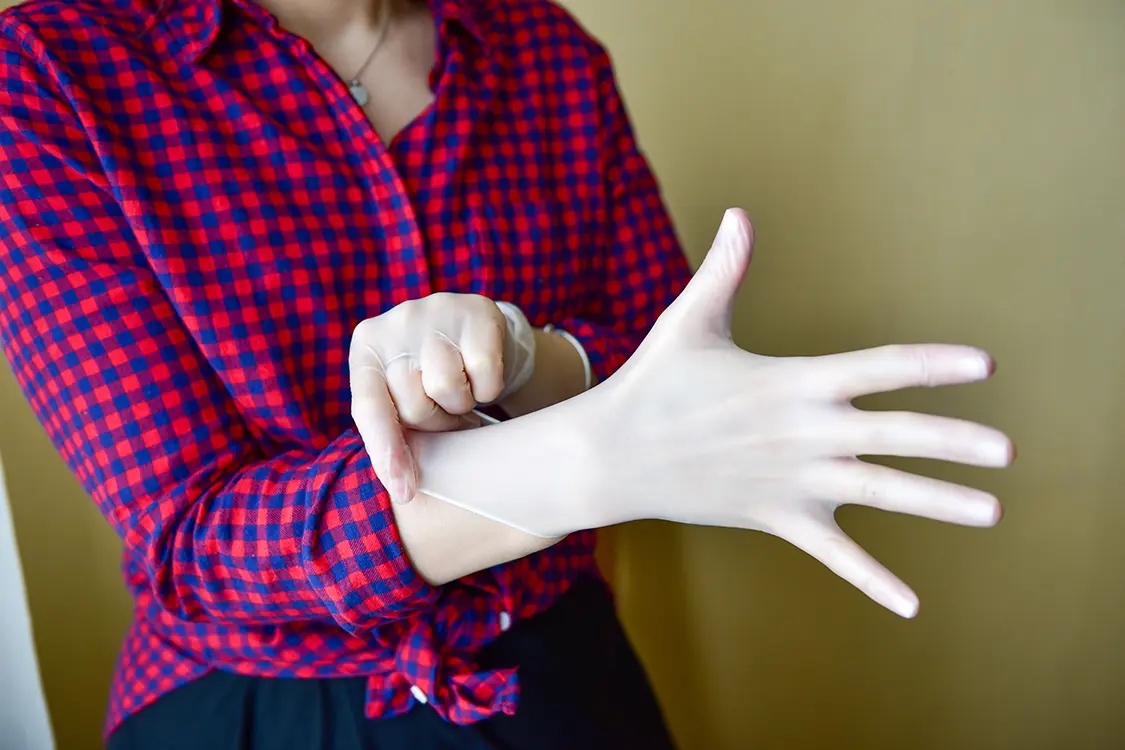In the fast-paced and demanding healthcare industry, protecting oneself and others from infections and contaminants is paramount. Among the many tools at the disposal of healthcare professionals, Vinyl Gloves stand out as a crucial line of defence. These versatile gloves provide a robust barrier against pathogens and contaminants, ensuring the safety of both patients and healthcare workers. This article will delve into the significance of vinyl or PVC gloves in the health sector, their benefits, and best practices for their use.
The Role of PVC Gloves in Healthcare
Ensuring Patient Safety
PVC gloves play a pivotal role in maintaining patient safety in healthcare settings. Healthcare-associated infections (HAIs) are a serious concern, and proper glove usage prevents their spread. Whether it’s during routine check-ups, surgeries, or administering medications, these gloves act as a protective barrier between healthcare professionals and patients, reducing the risk of cross-contamination.
Protection for Healthcare Workers
The health industry demands high hygiene and infection control, which can only be achieved with the right personal protective equipment (PPE). PVC gloves provide a crucial layer of defence for healthcare workers by minimising direct contact with bodily fluids, infectious materials, and contaminants. This not only safeguards their well-being but also helps maintain a healthy workforce.
Benefits of Using PVC Gloves in Healthcare
Affordability and Accessibility
One of the significant advantages of PVC gloves in the healthcare sector is their affordability and widespread availability. Hospitals, clinics, and other healthcare facilities often deal with large quantities of gloves daily. These gloves offer a cost-effective solution without compromising on quality or safety. This accessibility ensures that even smaller healthcare providers can maintain rigorous hygiene standards.
Allergen-Free Option
These non-latex gloves are preferred for healthcare workers and patients with latex allergies. Latex allergies can cause severe skin reactions and respiratory issues, making it essential to have latex-free alternatives readily available. Non-latex gloves serve this purpose well, offering a hypoallergenic option that minimises the risk of adverse reactions.
Comfort and Dexterity
In the healthcare industry, where precision and sensitivity are crucial, PVC gloves provide a comfortable fit and excellent tactile sensitivity. Healthcare professionals can easily perform intricate tasks while maintaining the required protection against contaminants. The snug fit of these gloves also minimises hand fatigue during long shifts.
Resistance to Contaminants
Non-latex gloves are resistant to a wide range of chemicals and contaminants commonly encountered in healthcare settings. They provide an effective barrier against blood, bodily fluids, pharmaceuticals, and a variety of other substances, ensuring the safety of both the wearer and the patient.
Best Practices for Using PVC Gloves in Healthcare
Proper Glove Selection
Selecting the right type and size of gloves is the first step in ensuring their effectiveness. Healthcare professionals should choose gloves that fit snugly without being too tight, which can cause discomfort and decrease dexterity. It’s also important to verify that the gloves are free of defects or tears before use.
Hand Hygiene
While PVC gloves provide a protective barrier, they are not a substitute for proper hand hygiene. Healthcare workers should always wash their hands thoroughly before and after wearing gloves. This practice helps prevent the transfer of contaminants and pathogens.
Single-Use Policy
Vinyl gloves are designed for single use only. They should be discarded immediately after use, even if they appear undamaged. Reusing gloves increases the risk of contamination and reduces their effectiveness.
In conclusion, in the health sector, where infection control is paramount, Vinyl Gloves are a vital tool in safeguarding patients and healthcare workers. Their affordability, accessibility, and hypoallergenic properties make them ideal for various healthcare settings. By adhering to best practices for glove usage, healthcare professionals can maximise the protective benefits of these gloves and contribute to a safer, healthier healthcare environment. In a world where infections and contaminants pose ongoing challenges, PVC gloves remain a trusted shield against potential threats.



